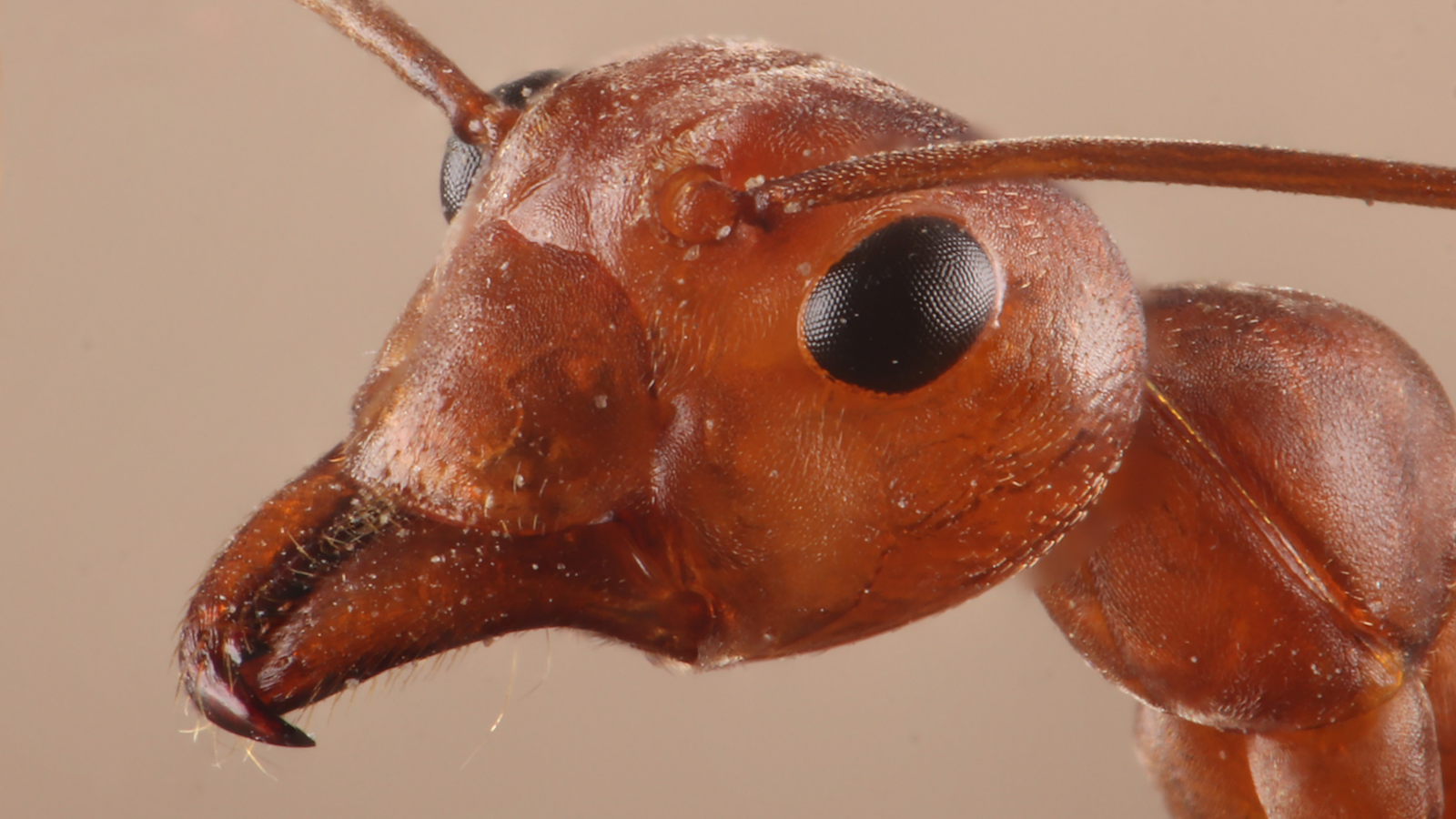
Best Earth Images of the Week - May 11, 2012
Even the Weather is Bigger
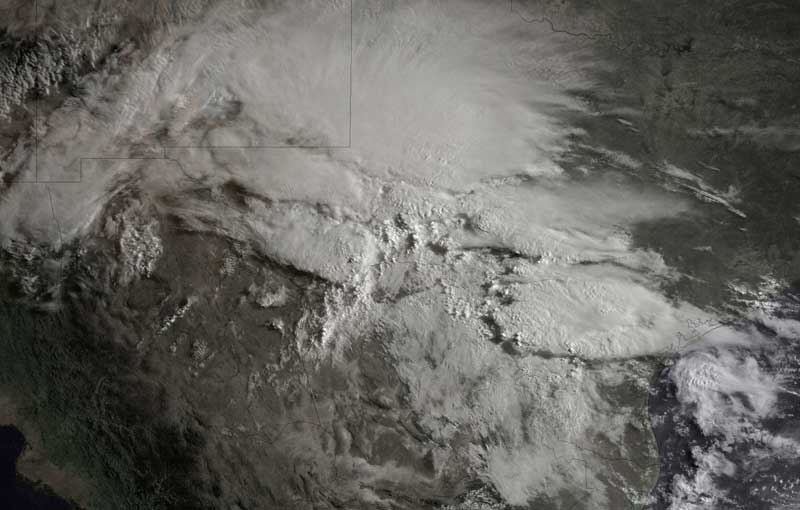
This week's picks include the cutest baby animals and some of the scariest weather around.
Here, a satellite photo from a week that has brought some severe weather to Texas. A satellite soaring overhead snapped a picture of some of the culprits thick layers of storm clouds that are crowding the skies over the southern state.
This image snapped on the morning of Thursday (May 10) revealed ominous clouds covering large portions of Texas.
[Full Story: Crazy Weather Spied from Space]
Alergic to Cute? RUN!
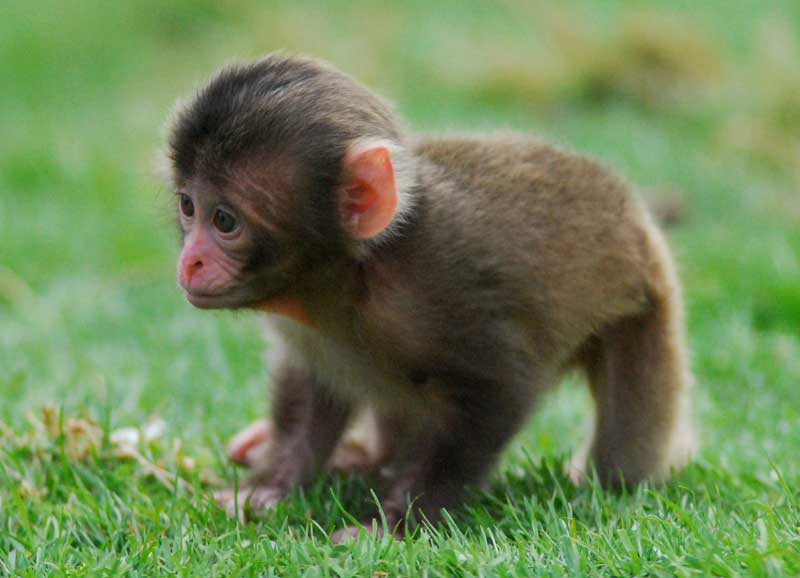
There's been a monkey baby boom at a zoo in Scotland, which recently welcomed three adorable Japanese macaques.
The three infants were born to three different mama monkeys between April 21 and 25, and the furry, three-week old babies are still too tiny to venture far from their mothers at Highland Wildlife Park.
With the new arrivals, there are now 21 Japanese macaques also often known as snow monkeys living at the Highland Wildlife Park.
[Full Story: Cute Alert! Monkey Baby Boom Hits Scottish Zoo]
Start of a Long Process
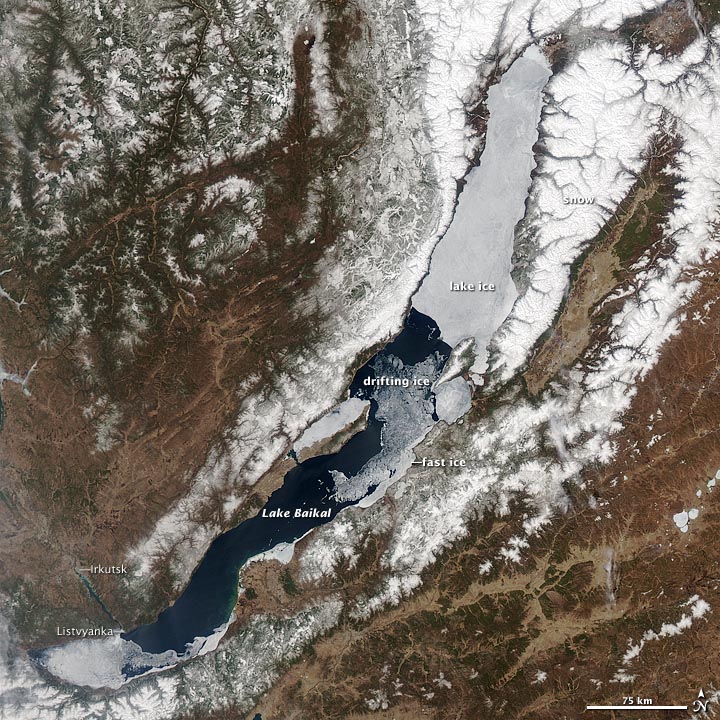
During the winter months, Russia's Lake Baikal is usually completely covered by a thick layer of ice not a surprise given its location in Siberia. Come spring, the long, slow melt begins.
Patches of open water usually appear in the southern part of the lake in early May and move progressively northward. But it isn't usually until late June that the last remnants of the ice have disappeared from the northern reaches of the lake.
NASA's Aqua satellite snapped a picture of the melt in progress. Ice remains throughout the northern portion of the lake, but drifting ice and large patches of open water are visible throughout the southern part.
[Full Story: Siberia's Lake Baikal Seen Mid-Melt]
Birth of ... Twisters
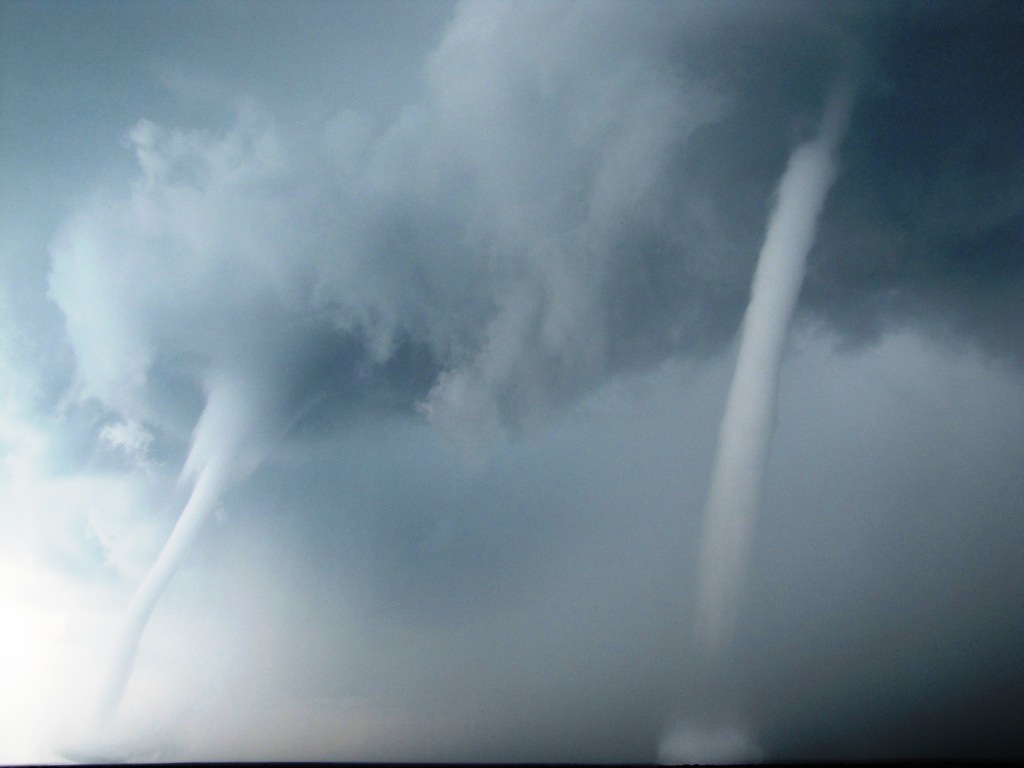
A scientist caught the birth of rare twin waterspouts on camera as the twisters churned to life over Louisiana waters yesterday (May 9). One of the powerful and unusually long-lived twisters damaged homes and cut power as it barreled across Grand Isle, a long, narrow island along the southeastern leg of the state's Gulf coastline.
The tornadoes formed at the front edge of a powerful storm system that moved across the region yesterday afternoon.
[Full Story: Rare Twin Waterspouts Caught on Camera]
Just Try Not to Smile
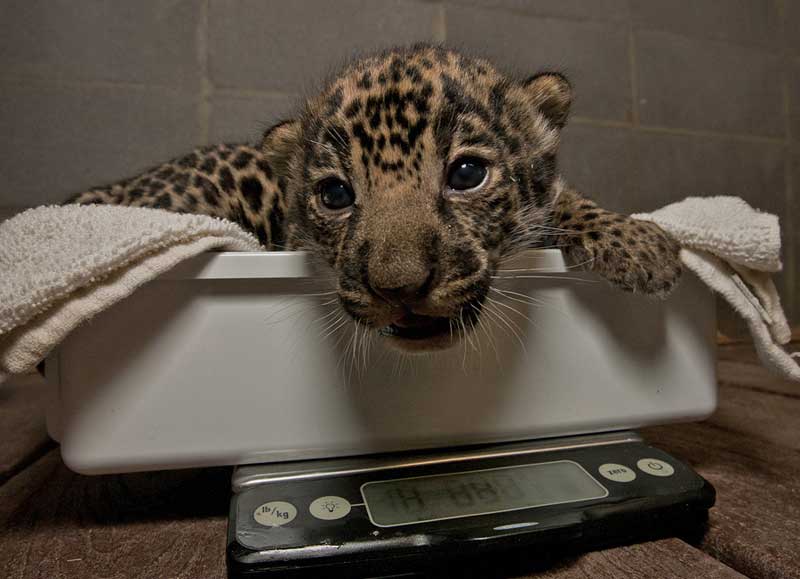
The San Diego Zoo recently welcomed two bundles of cuteness in the form of twin jaguar cubs born on April 27, the first jaguars born at the zoo since 1989.
One of the 12-day-old cubs recently took a turn on a zoo scale during a check-up.
This tiny cub is still too young to get on and off the scale on its own. The two unnamed siblings will remain in the den for a couple of months until they are able to walk outdoors on their own.
[Full Story: Cute Alert! Baby Jaguars Born at San Diego Zoo]
(Camera) Trapped
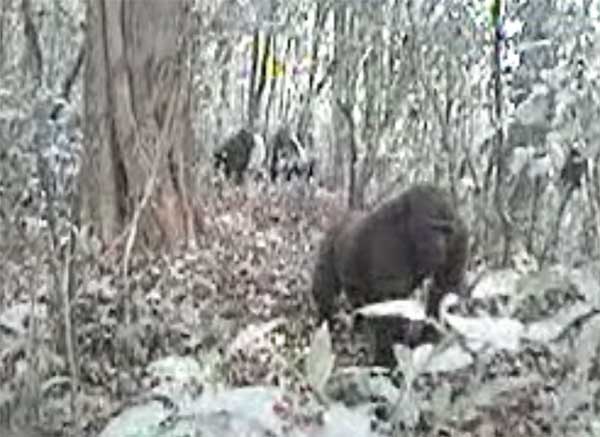
The rarest gorilla on Earth, the elusive Cross River gorilla, has been caught on film by a hidden camera trap for the first time ever.
Researchers estimate that only about 250 to 300 of the gorillas remain on the planet, and humans have rarely observed these critically-endangered primates in their natural habitat.
The two-minute footage shows eight of the gorillas making their way through a forest in Cameroon. The video offers a glimpse of classic gorilla behavior, yet also reveals the plight of the threatened apes.
[Watch the Video]
Remarkable View
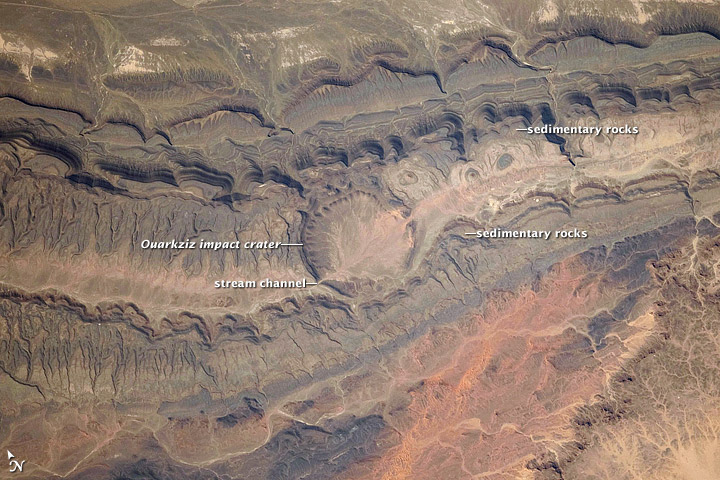
Astronauts aboard the International Space Station have snapped a stunning new photo of a heavily eroded impact crater in Algeria.
The image shows Ouarkziz Crater, a 2.2-mile-wide (3.5-kilometer) hole in the ground in northwestern Algeria, near the border with Morocco. It was formed by an asteroid impact less than 70 million years ago, during the late Cretaceous Period of the Mesozoic Era, which is also known as the "Age of Dinosaurs."
[Full Story: New Astronaut Photo Highlights Impact Crater]
Sign up for the Live Science daily newsletter now
Get the world’s most fascinating discoveries delivered straight to your inbox.
Grand Beauty
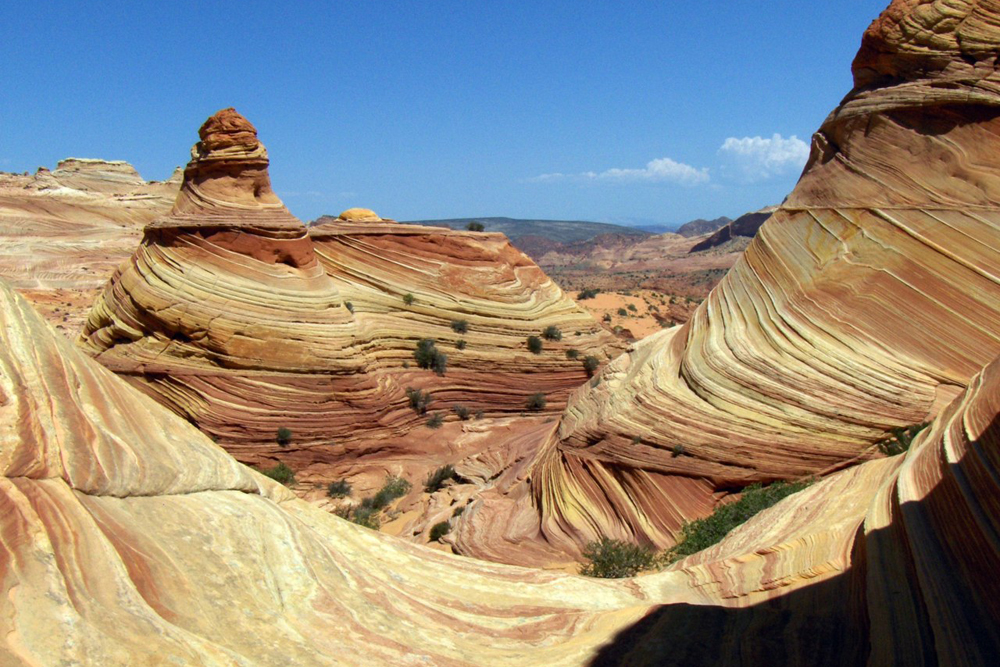
Grand Staircase Escalante-National Monument in southern Utah spans nearly 1.9 million acres of public lands. It's named for the spectacular Grand Staircase of cliffs and terraces, across the rugged Kaiparowits Plateau.
The monument is named not for the thin striations seen in this image, but for the way the Grand Staircase consists of a series of topographic benches and cliffs.
[Full Story: The Beauty of Nature's Grand Staircase]











